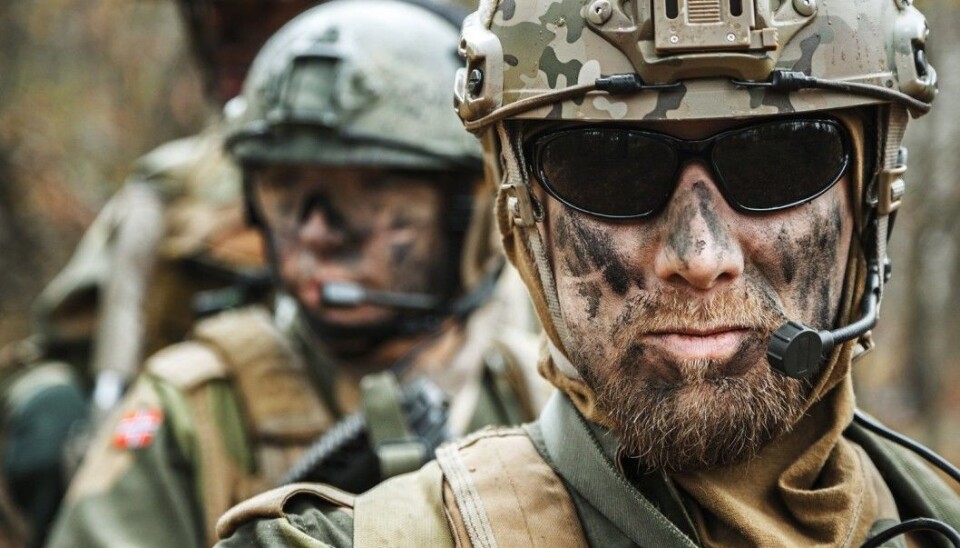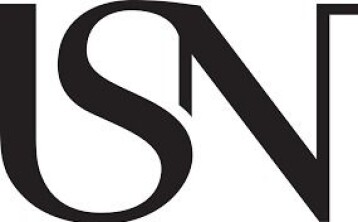This article was produced and financed by the University of South-Eastern Norway - read more

This is how the Norwegian Armed Forces can find the best leaders
Interviews and personality tests are important tools in recruiting leaders. However, new research has revealed a new method which can be far more accurate.
“This method is much better and should be a good complement to the tests used by recruitment companies today. Unfortunately, it is not yet known in Norway”, says Ole Boe.
He is a professor of organization and management at the USN School of Business. Boe has also worked for 16 years in the Norwegian Armed Forces, including as captain in one of the Norwegian Armed Forces' special units.
He uses the term character strengths.
Boe's inspiraton for taking a closer look at character strengths came from the book «Character strengths and virtues» published by researchers Peterson and Seligman, in 2004.
The book classifies six core virtues with 24 associated character strengths. The six core virtues are wisdom and knowledge, courage, humanity, justice, temperance, and transcendence.
“Character strengths are really nothing new. The ancient Greeks were also concerned about this, but it has gained little attention despite the fact that it is a very good tool for finding the best leaders”, says Boe.
Hard to predict who will be good leaders
Boe is an expert on leadership under demanding and sometimes extreme conditions. The research-team he is part of has been trying to solve a challenge: Why is it so difficult to predict who will become the best leaders in the Norwegian Armed Forces, through the methods that have been common to use?
“I met some cadets at the Norwegian Military Academy, where I also used to work. They talked about how difficult it was to know which of them would become good leaders, even though they had already been through a thorough selection process, first to the Officer candidate school and then to the Norwegian Military Academy”, Boe says.
This was the start of a research project that started at the Norwegian Military Academy in 2014 and will end in 2020.
The Norwegian Armed Forces have a completely different approach to leadership today than a few decades back. The avalanche accident in Vassdalen in 1986 ended the old leadership-philosophy, where the subordinates were expected to follow orders, no matter how they themselves evaluated the situation.
Today's officers give more freedom to their subordinates, based on the mission they are assigned to perform. This sets other requirements for those who will become leaders in the Norwegian Armed Forces.

Character strengths are about the deep values
Ole Boe says character strengths are different from personality
“What we see of a human every day is like the tip of an iceberg. It is when things get difficult that you see what is beneath the surface. When it hurts, when it is tiring and challenging. One of the first things that happens when you become tired and exhausted, is that the ability to care for others disappears. Character strengths have to do with values and attitudes. You can only mask these to a certain extent. Your character strengths, or any lack of character strengths, emerge in such difficult and challenging situations”, says Boe.
“They say something about what lives inside you. If the same reactions recur over time, it is a pattern. A negative pattern may indicate that you are not suited to be a leader.”
Boe says character strengths are about the deeper values that guide our actions.
“Values and attitudes are perhaps the most important thing for a leader”, says Ole Boe.
Twelve character strengths for officers
Boe operates with twelve character strengths, which are especially important to succeed as an officer.
These 12 character strengths were selected through a systematic review in which scientists, military personnel and officers in various rounds rated the importance of the original 24 character strengths on a scale of 1 (not important) to 5 (very important) for an officer.
A score of 4 or higher indicated that the specific character strength was considered important.
The result was these twelve character strengths:
1. Leadership
2. Integrity (honesty)
3. Persistence
4. Courage
5. Fairness
6. Open-mindedness
7. Social intelligence
8. Teamwork
9. Self-regulation
10. Perspective
11. Love of learning
12. Creativity
These twelve main character strengths have been proven to predict who will be accepted at the Norwegian Military Academy.
Special soldiers with soft values
In addition to the twelve most important character strengths, Boe and the research group have found very distinctive character strengths in the Norwegian Special Forces. The finding may be surprising to some:
“In soldiers at the Norwegian Special Operations Forces (NORSOF) we also find curiosity, humility/modesty, and forgiveness and mercy. Actually, this is not surprising to me. These soldiers have been through a tough and thorough education. They have become very familiar with themselves and have had to think carefully about their own attitudes and values, because they must be prepared to end up in dangerous situations. In addition, they are often a little older and have more experience”, says Boe.
Officers work in special situations. But perhaps these findings can be of value to us civilians as well?
“Character strengths are an extra contribution to finding out what resides in you as a human being. Character strengths are about you as an individual. In fact, they are also important with regard to your employer, because your own attitudes and values must correspond with the organization in which you work”, says Boe.
Can a good leader manage any kind of organization?
Boe is not so fond of using the term «military leadership». The challenges of leadership are the same everywhere, but the context is different.
“Military leaders must be able to handle extreme stress and make decisions that can be about life and death. Nevertheless, fighting is only a small part of being a military leader. I think the knowledge we have in the Norwegian Armed Forces also can be useful for leaders in business, organizations and other places in civil society.”
When Boe talks about military leadership, he says it's important to know the military profession.
But does this philosophy apply in other contexts, can you lead anything, if you are a good leader?
He mentions three types of skills you need as a leader:
- Professional competence, knowing your profession
- Self-competence, knowing yourself and your reactions
- Social competence, knowing how you are perceived by other people
At a top level you may be able to lead anything, but at a lower level you must have professional experience, says Boe.
“I have a lot of different education, but I couldn't go in and be the head of the nurses at the local hospital, because I don't know the profession. At the same time, a good professional doesn’t automatically become a good manager.”
“There are many examples of professionals moving up to management positions, which they should not have had. This creates two problems: You lose a good professional and risk getting a bad manager. In the Norwegian Armed Forces, we have a system for that. You do not move up to a higher level unless you are qualified. I am not sure that this is the case everywhere else”, says Ole Boe.
References:
Ole Boe:
https://www.sciencedirect.com/science/article/pii/S1877042815041890
https://www.sciencedirect.com/science/article/pii/S1877042815032504
Christopher Peterson and Martin Seligman: «Character strengths and virtues: A handbook and classification.» New York: Oxford University Press and Washington, DC: American Psychological Association, 2004.
———
Read the Norwegian version of this article on forskning.no































